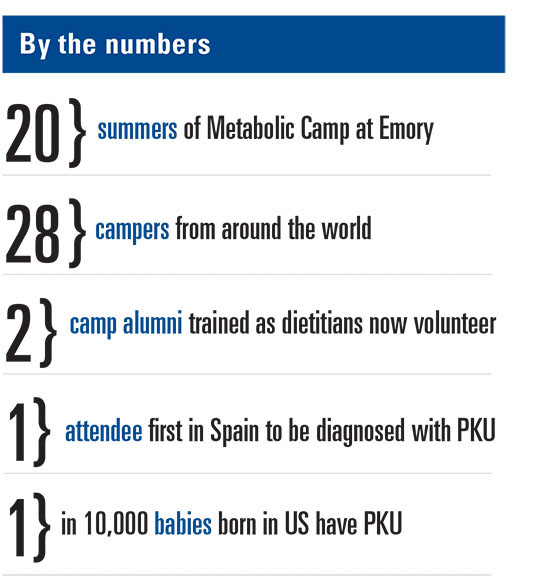Arts, crafts, and tracking nutrients

Just like most summer camps, a big part of Emory's Metabolic Camp centers on food—cooking, sharing creative recipes, and eating together, while participating in traditional activities like crafts, sports, and field trips.
But eating is a serious matter for these teen campers, who have metabolic disorders such as phenylketonuria (PKU) or maple syrup urine disease. As little as one gram of protein can cause irreversible brain damage or death. Metabolic disorders are usually detected through newborn screenings, and children who are diagnosed must follow a low-protein diet for life, consisting of a specialized medical formula, fruits, and vegetables.
"Most of these girls can't attend other camps because of their special dietary needs. This camp allows them to interact with other children and feel less isolated while learning things that can save their lives and the lives of their future children," says camp director Rani Singh, a biochemical nutritionist and professor of human genetics. Campers also participate in research, screenings, and classes in nutrition, reproductive health, and genetics.
Camp guest Victoria Veiga of Madrid, the first person in Spain to be diagnosed with PKU at 13 months old, is now 50 and has three adopted children. Her father, a software programmer, still helps her manage the intricacies of her diet by tracking nutrients with a program he developed. "My family is very supportive," she says, "but it's also nice to be around others who have PKU, and share information with them."











